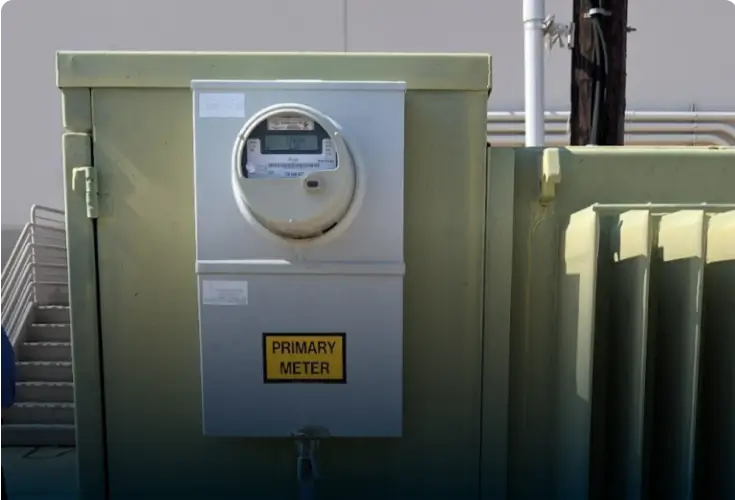Introduction
A convergence of trends is compelling real estate service companies to become drivers of technology adoption across the industry.
Whether due to increasing competition, pressure from owners and occupiers or improved technology, major service companies are shedding the “slow to adapt” label that is often associated with commercial real estate.
"Just as technology is transforming many traditional industries across the business world, such as transportation, the time is right to make change happen for real estate," said Mihir Shah, co-CEO of the new Spark division at JLL.
Launched in July, the fully autonomous group is tasked with incubating, developing and investing in new software and technology for commercial real estate.
Betting on experience scaling technology over industry knowledge, JLL hopes that Mr. Shah and his co-CEO Yishai Lerner can transition their success in Silicon Valley to the commercial real estate industry. The two have been founders and employees at high growth tech startups like Groupon and have been active angel investors themselves.
While JLL is hiring Silicon Valley veterans to run their internal venture fund, other companies are developing partnerships with existing players in the RE tech space.
Just last week, Cushman & Wakefield announced a partnership with MetaProp NYC to help them evaluate and adopt new real estate technologies. MetaProp provides advisory services to real estate companies and operates a startup accelerator focused on real estate technology. MetaProp has invested in over 50 companies that have gone on to raise over $2 billion.
Cushman’s corporate strategy is to adopt new technologies that could become pilot programs, partnerships and opportunities for investments and acquisitions. With this relationship, the company intends to have greater insight into promising RE tech innovations in their early stages.
One submeter solutions company that participated in the MetaProp accelerator, Enertiv, has recognized the trend of real estate service companies looking to adopt technology solutions.
“We’ve seen an uptick in interest from real estate service and property management companies,” said Enertiv’s CEO, Connell McGill. “Especially when it comes to automating historically manual back-office processes like tenant submetering and billing, service companies are clearly starting to become champions for technology-based solutions.”
Some firms are throwing their hat in the ring as the source of innovation, either through homegrown solutions or targeted acquisitions.
In April, CBRE acquired Mainstream to expand its property management tech capabilities. Colliers International is investing in drones and virtual reality to market new properties.
Meanwhile, Newmark Knight Frank has been developing its VISION platform, billed as a comprehensive centralized technology platform for commercial real estate organizations.
Despite widely varying models and applications, the trend is clear. Real estate service companies are playing catch-up in a big way, and bringing the rest of the industry with them.

Investments are following suit. In 2015, $1.9 billion was invested in real estate technology companies around the world. That number rose 36 percent in 2016 to $2.6 billion.
Earlier this summer, service company CBRE joined other major real estate companies including Equity Residential, Hines, Host Hotels & Resorts, Lennar, Macerich, and Prologis as LPs in Fifth Wall Ventures, which closed a $240M fund with a focus on real estate technology. The fund doesn’t just invest in companies, it leverages relationships with its LPs to connect property owners and operators with startups to promote portfolio-wide adoption. The model has the potential to accelerate tech adoption for the entire industry by setting a precedent of success with some of the largest players.
Despite the shifting playing field, real estate is still the relationship-based business it always has been. However, banking used to be relationship driven. Now the nature of customers driven by ROI means that relationships mean nothing less to an organization than bringing better returns in an increasingly competitive world.
When solutions work, they become institutionalized. Property managers have relied on outdated solutions for years because they had developed close working relationships with a certain set of vendors and created artificially high barriers to entry. Technology changes this dynamic is every way possible.
Properly applied, service companies can leapfrog some of the traditional barriers to adoption in large organizations. If technology evaluations can be performed in a data-driven way, the real estate service industry can quickly become leaders instead of laggards.
The question is, what characteristic of the real estate industry lends itself to leadership in a technology vertical?
One answer may be the buildings themselves.
Whereas the Internet of Things (IoT) has had less of an impact in the consumer market than some predicted, the real estate service industry has obvious and built-in needs for the IoT.
Service companies are often employed as property managers, where their role is to improve the efficiency and performance of entire portfolios. This is a broad mandate that includes management of building operations, tenant relations and financial management.
The problem is that, unlike finance or media, there is almost no visibility into what is happening at any given moment in a building unless you are on site, and even then, it’s difficult to be everywhere at once.
More and more, real estate service companies are finding that the IoT, combined with network connectivity, can solve this problem. Tracking outputs such as electric and gas consumption, chilled water usage, steam usage, weather conditions, moisture, indoor air quality, space temperatures, and occupancy rates remotely in real time can allow mangers to make dynamic, data-driven decisions.
On the back end, RE tech companies are offering tools to turn these outputs into insights. Real-time notifications can be sent when critical systems break down or are about to, equipment runtime schedules can be continuously monitored to make sure operations are efficient, and machine learning algorithms can identify anomalies in consumption patterns that humans can’t. These are just a small sample of what is now possible with new data streams being made available from sensors whose prices have fallen dramatically.
Managers no longer need to be expert diagnosticians. Remote monitoring means that property management professionals can stay attuned to building operations from anywhere at any time.
Manual gathering information, and compiling and evaluating reports to make only partially informed decisions will give way to technology and platforms that will automate the processes that end up yielding more efficient, precise, and lucrative decisions that makes people's jobs easier and assets more valuable.
Enertiv's technology is bult to do just this. Request a demo today to see how!
CASE STUDY
Top 10 Global Asset Management Firm deploys Enertiv to get 100% utility data coverage across 100+ industrial sites
Light at the end of the tunnel
If you’ve made it this far, you’ve likely realized that implementing a utility data collection system in-house involves much more than installing meters and connecting APIs.
Yes, it’s possible to build it from scratch.
But it takes time, resources, and a learning curve that’s hard to fully anticipate.
Unless this is your core business, you’ll likely spend years learning lessons we’ve already paid for — through failed installs, messy integrations, and countless conversations with teams with real-world demands.
What may seem like a straightforward checklist today was, for us, a long path marked by challenges and meaningful breakthroughs.
Today’s sustainability leadership depends on speed and data precision. If you’re serious about hitting decarbonization targets, every delay in collecting accurate utility data is a missed opportunity.
That’s why going through this entire build process internally can actively slow your energy transition.
You don’t need to start from zero to reach net zero. You just need to avoid the mistakes that stall everyone else.





%20consider.webp)
